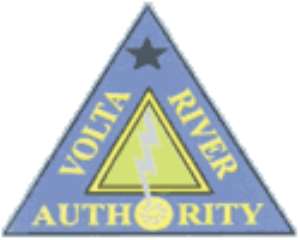
Government is to set up an independent Transmission Company to undertake all transmission system requirements of the provision of electricity in the country.
The decision, which parliament is expected to approved before January 2007 seeks to disengage the Volta River Authority (VRA) from being the sole Authority of the power generation and transmission in the country. To that effect, Parliament has already amended the VRA Act to separate the transmission role from the generation function and allow for the creation of a Transmission Utility that would attract private sector participation in the energy sector.
Speaking to the Ghana News Agency last Tuesday Mr Antwi Darkwa, Director of Power at the Ministry of Energy said the move formed part of the reforms currently going on in the power sector.
He however, said that 'government had made a transitional arrangement to allow the VRA perform both the generation and transmission roles until 'we fully get the new Transmission Company functional in place'.
He explained that though the Transitional Company is expected to be set up hopefully by the end of the first quarter of next year, the transitional arrangements would continue until the company became financially sustainable.
Given an overview of the energy sector during a visit by a delegation of European Union Ambassadors in the country, Mr Darkwa said a major policy shift of government was to reach out to the private sector investors in the provision of power generation facilities in the country.
He said there was the need for reinforcement of networks to improve reliability and reduce vulnerability in the transmission system adding, 'major expansion required in capacity of network to support load growth.'
Future transmission works earmarked includes the construction of 330 KV Aboadze-Tema transmission line and 161 KV Kumasi-New Obuasi transmission line, which are both expected to be completed sometime next year.
In 2008, the following would be undertaking: Development of 161 KV Tumu-Han-Wa transmission line, 330 KV Aboadze-Prestea-Kumasi transmission lines and the development of a third bulk supply point in Accra and a second bulk Supply Point in Kumasi.
According to Mr Darkwa, the next five years would require a total of 2.35 billion dollars in the energy sector for the generation, transmission, distribution and the Self Help Electrification Programme (SHEP).
Dwelling more on the policy actions to meet current and future developments, Mr Joseph Kofi Adda, the sector Minister said significant investment was required to meet capacity expansion and system reinforcement.
He said there was also the need to deal with the inefficiencies in the operations of the utilities as well as increase access to electricity from the current level of 55 per cent to 100 per cent in 2020.
Mr Adda said it was also important to assure cost effectiveness and pricing while at the same time maintaining customer service satisfaction.
Under the petroleum sector, the Minister said government would continue the implementation of a full cost recovery pricing mechanism to ensure uninterrupted supply of products requirement.
He said by making petroleum products more accessible to all people, government would adopt mechanisms to manage the rapid growth in demand in view of the spiralling global oil prices.
Mr Adda said storage capacities for petroleum products would be expanded whilst the strategic reserve stock was increased to six weeks national consumption by 2008.
The supply of Liquefied Petroleum Gas (LPG), he said, would be expanded to substitute wood fuel use in homes and small businesses. Mr Adda said the development of bio-diesel as a viable substitute for fossil fuel would be promoted.
'Priority would be given to research and development in energy technology,' he said.
Mr Peter Linder, the German Ambassador who led the delegation said the visit formed part of the groups' programme to visit strategic sectors and Ministries to be abreast with developments in the country.
He noted that the EU and member states' support to Ghana formed more than 50 per cent of all donor assistance and therefore was important for them to keep track of the developments in the various sectors so as to deepen the partnership. The Ambassadors later toured the Tema Oil Refinery and the Volta River Authority at Akosombo and the Akosombo Dam.




 Dr. Wiafe Akenteng: Over 3,000 cured of kidney disease by award-winning Ghanaian...
Dr. Wiafe Akenteng: Over 3,000 cured of kidney disease by award-winning Ghanaian...
 Do I have to apologise for doing my security work? I won’t – Simon Osei-Mensah t...
Do I have to apologise for doing my security work? I won’t – Simon Osei-Mensah t...
 Railway Minister Peter Amewu loses 94-year-old mother
Railway Minister Peter Amewu loses 94-year-old mother
 Prestea and Bogoso mines: Complete payment of outstanding salaries not later tha...
Prestea and Bogoso mines: Complete payment of outstanding salaries not later tha...
 NDC postpones Prof. Opoku-Agyemang entry tour to May
NDC postpones Prof. Opoku-Agyemang entry tour to May
 All my businesses have collapsed under Akufo-Addo — NDC Central regional chair
All my businesses have collapsed under Akufo-Addo — NDC Central regional chair
 Military, Prison Officers clash in Bawku, three injured
Military, Prison Officers clash in Bawku, three injured
 GRA-SML contract: MFWA files RTI request demanding KPMG report
GRA-SML contract: MFWA files RTI request demanding KPMG report
 Court threatens to call second accused to testify if NDC's Ofosu Ampofo fails to...
Court threatens to call second accused to testify if NDC's Ofosu Ampofo fails to...
 Family accuses hospital of medical negligence, extortion in death of 17-year-old...
Family accuses hospital of medical negligence, extortion in death of 17-year-old...
